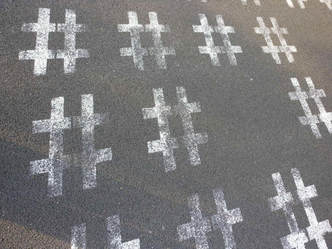 July marks the five-year anniversary of the first use of the #BlackLivesMatter hashtag, and what many social media critics consider the birth of hashtag activism. What makes the #BlackLivesMatter hashtag remarkable, beyond serving as a catalyst for both online and offline discussions, is its ability to bring people to Twitter and other platforms to generate more awareness for this and other important issues. For example, #MeToo, #MAGA and newer campaigns have gained so much attention that they are now part of our everyday vernacular. Mention any of these hashtags in conversation and most people will know what issue you’re referencing. Online activism doesn’t show any sign of slowing down. Again, consider the #BlackLivesMatter hashtag. According to a recent report by the Pew Research Center, the hashtag was used nearly 30 million times on Twitter. That’s a bit more than 17 thousand times per day. “The conversations surrounding this hashtag often center on issues related to race, violence and law enforcement, and its usage periodically surges surrounding real-world events,” the report states. It seems that Americans are interested in participating in these conversations and, more importantly, they believe online activism is, for the most part, working. In other words, online activism can lead to changes. “Majorities of Americans do believe these sites are very or somewhat important for accomplishing a range of political goals, such as getting politicians to pay attention to issues (69 percent of Americans feel these platforms are important for this purpose) or creating sustained movements for social change (67 percent),” the report added. Social media users who are black believe Twitter and hashtag activism are necessary for their own political engagement. “Roughly half of black social media users say these platforms are at least somewhat personally important to them as a venue for expressing their political views or for getting involved with issues that are important to them,” the report states. This falls to about a third for white social media users. Although some social media users may be more politically active and engaged online, opinions are divided as to whether or not hashtags are useful for improving political discourse. “Some 64 percent of Americans feel that the statement ‘social media help give a voice to underrepresented groups’ describes these sites (Twitter, Facebook, etc.) very or somewhat well. But a larger share say social networking sites distract people from issues that are truly important (77 percent), and 71 percent agree with the assertion that ‘social media makes people believe they’re making a difference when they really aren’t,’” the report added. Regardless of race, users also seem divided on the benefits and costs of hashtag activism, but the majority of black Americans say Twitter helps to promote important issues and give voice to underrepresented groups. So long as access is free and open, hashtags like #BlackLivesMatter will live on to promote social change.
0 Comments
Your comment will be posted after it is approved.
Leave a Reply. |
AuthorDr. Adam C. Earnheardt is special assistant to the provost and professor of communication in the department of communication at Youngstown State University in Youngstown, OH, USA where he also directs the graduate program in professional communication. He researches and writes on a variety of topics including communication technologies, relationships, and sports (with an emphasis on fandom). His work has appeared in Mahoning Matters as well as The Vindicator and Tribune-Chronicle newspapers. CategoriesArchives
July 2023
|
 RSS Feed
RSS Feed